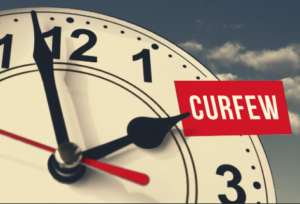Mout mek fi talk
Dr Peter Phillips is right: “If we back up and go into our houses, we would have surrendered our rights to criminals.” He’s right. He’s just a little late. While he was busy tooling around town with the protective services of a security detail, the rest of us were locked up in our houses – ‘fraid. Now that he’s as exposed as the rest of us, him might catch him ‘fraid too.
The 2009 statistics are frightening. Out of a total of 39,188 crimes, 500 were larcenies; there were 1,650 shootings; 3,700 break-ins; 1,700 murders; 1,650 rape cases; and 3,000 robberies. While Jamaica is considered one of the most potentially dangerous places in the Caribbean, the region has one of the lowest crime rates in the world. And as the Jamaica Tourist Board stresses, you are more likely to be mugged in New York than in Montego Bay, so it’s important to keep things in perspective.
Perspective is relative however, when experience shows that you’re as vulnerable in a church parking lot as you are on the mean streets of Kingston.
The 2010 Jamaica Crime and Safety Report, conducted by the Overseas Advisory Security Council, noted that violent crimes including murder, shootings, carnal abuse, and robbery are up compared to previous years. The Opposition People’s National Party in January suggested that major crimes increased by 18 per cent, break-ins are up by 55 per cent, and murders have increased by 26 per cent. The UN stresses that, “Crime statistics are often better indicators of prevalence of law enforcement and willingness to report crime, than actual prevalence.”
What that means, dear reader, is the actual incidents of crime might be greater than reported, because as we know, we’re reluctant to report lest we be labelled “informers”. Dr Phillips is sensitive to that too, it appears, for in the matter of Jamaica vs the United States of America, he makes sure to say that: “I merely asked some questions… I have not asked or demanded that anyone be extradited; I have simply asked that the matter be placed within the purview of the court of law.” Him nah call nuh name.
A colleague columnist said it best: “The news of the day is the stuff of suspense and high drama, and our media houses have been doing a pretty good job of capturing it. We should remember, however, that getting and carrying the news is the business of the media. Repeating it ad nauseam will destroy our productivity. Check out what is happening during those newsbreaks: there are multitudes of advertisements for phones, banks, food, health, education and entertainment. It simply means that while some of us are tearing our hair out over the news, many are getting on with their lives.”
While it is clear that the our modus operandi is to stick our heads into the sand and pretend that “the stuff of suspense and high drama” won’t affect us, I am reminded of Minister of Security Dwight Nelson’s first address to the nation in which he suggested that the future of Jamaica depends on every law-abiding citizen coming on board to play his or her part in the search for solutions and to improve the effectiveness of law enforcement. “One cannot simply sit and watch the country being destroyed by criminal elements. If we are to fight this disease, then we must get involved. It is the duty of every citizen to enrol in the fight against crime.”
Over one year later little has changed; we’re as uninvolved as ever. Minister Nelson told us that the prescription for what ails us is a long one: anti-gang legislation; seizure of criminal assets; enhanced recruitment and training of security forces; hundreds of millions of dollars to be spent on vehicles for the police force; raising the level of our Forensic Science Laboratory to international standards; a National Identification System; eight new pieces of legislation; and nearly a billion dollars to be spent on Citizen Security and Justice Programme initiatives involving community policing. Perhaps none of this has taken place, for at four months into the year our murder rate is an astounding 12 per cent higher than it was last year and we’ve not even been able to appoint a commissioner of police because of a contract disagreement.
So focused we are on the protection of the rights of one individual that the four people who are murdered each day go largely ignored. We wonder when the matter will be settled so that we can go on with our lives, heads in the sand as usual. For as Dr Phillips says: “We cannot allow this country to degenerate into jungle justice governed by wanton disregard for law and order.”
Pull quote: While it is clear that the our modus operandi is to stick our heads into the sand and pretend that “the stuff of suspense and high drama” won’t affect us, I am reminded of Minister of Security Dwight Nelson’s first address to the nation in which he suggested that the future of Jamaica depends on every law-abiding citizen coming on board to play his or her part in the search for solutions and to improve the effectiveness of law enforcement












